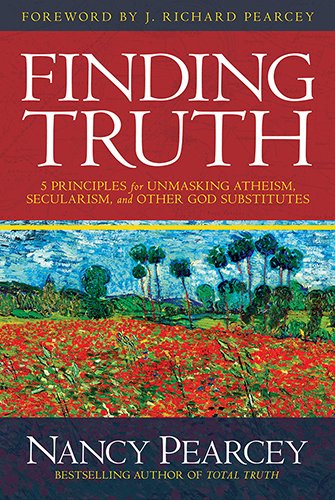A Brief Book Summary from Books At a Glance
About the Author
Nancy Pearcey is a Christian intellectual and award-winning author who has taught extensively on Christianity, truth, worldviews, and culture. She is professor and scholar in residence at Houston Baptist University.
Introduction
In this book Nancy Pearcey presents five principles drawn from Romans 1 that teach us how to identify errors in non-Christian worldviews. She argues that every non-Christian worldview posits an ultimate reality (an idol) that is too small and reductionistic to account for every aspect of human experience. Analyzing worldviews can help people see that Christianity is coherent and satisfying, and that all other alternatives are unable to bear the weight of their own claims. Christians need to be trained to see the weaknesses in competing views and to present a positive case for Christian truth. Pearcey provides many examples of the inconsistencies and failures that plague non-Christian worldviews. She argues that everyone depends on the Christian worldview in order to function, even though many deny Christianity in theory.
Table of Contents
Part One
“I Lost my Faith at an Evangelical College”
Part Two
Principle #1 Twilight of the Gods
Principle #2 How Nietzsche Wins
Principle #3 Secular Leaps of Faith
Principle #4 Why Worldviews Commit Suicide
Principle #5 Free-Loading Atheists
Part Three
How Critical Thinking Saves Faith
Notes
Appendix
Study Guide
Summary
Part One
“I Lost My Faith at an Evangelical College”
Too many Christians are losing their faith in evangelical schools where nobody wrestles deeply with the reality and implications of the Christian worldview. Ironically, many find that they need to study hard in order to come back to God. Romans chapter 1 teaches that everyone knows God through the things that he has made. Our universe is finely-tuned for the existence of life in a way which is astronomically improbable. DNA is biological information, and only intelligent sources generate information. This entails that the information in DNA is not found in its chemical composition, but in an external, intelligent source. Even the fact that the universe is intelligible and ordered points to a designer. Humans are personal, conscious beings that are inexplicable given materialism. We do not come from something impersonal, but someone personal. Our intelligence and ability to choose show that our maker is a personal, free mind.
In Romans 1 Paul moves from the fact that creation reveals God to the fact that human beings are in rebellion against him. We suppress our knowledge of God. We are comfortable with spirituality or pantheism, but when we are confronted with the personal, living God who made us and who judges us, we draw back. Since we reject the real God, we manufacture and set up idols in his place. Idolatry is the fundamental problem of the human heart. Whatever we put in the place of God is an idol. Our idolatry — as Paul points out — has consequences. We exchange the truth for a lie. We exchange God for our idols. We exchange reality for a counterfeit worldview. We exchange morality for what is immoral.
The Five Principles
Romans 1 also gives us five principles that can help us analyze and understand worldviews. The rest of this book covers these principles. The first principle is that we need to identify the idol. Anything that we put in the place of God will have to serve as an ultimate explanation and stopping point. Materialism places matter in this position, while rationalism selects reason. The second principle is to identify the idol’s reductionism. Reductionism occurs when a complex reality is oversimplified and distorted. If we reduce everything to matter, then we are only atoms that have no freedom. The third principle is that we need to test the idol. Since idolatry is reductionistic, when we compare the idol to what we know about the world, we will see that it doesn’t fit. There will be parts of our experience that cannot be accounted for in an idolatrous worldview. The fourth principle is that we need to test the idol again, but this time looking for internal logical consistency. Idolatrous worldviews will not match our knowledge of the external world, and they will also fail to be internally coherent. The fifth principle is that we need to replace the idol — we attempt to do so by arguing for the truth of Christianity. The biblical worldview is powerful and cogent….
The remainder of this article is premium content. Become a member to continue reading.
Already have an account? Sign In
